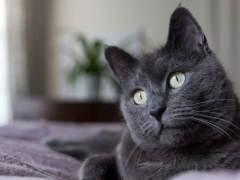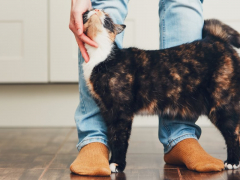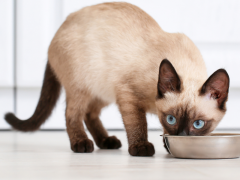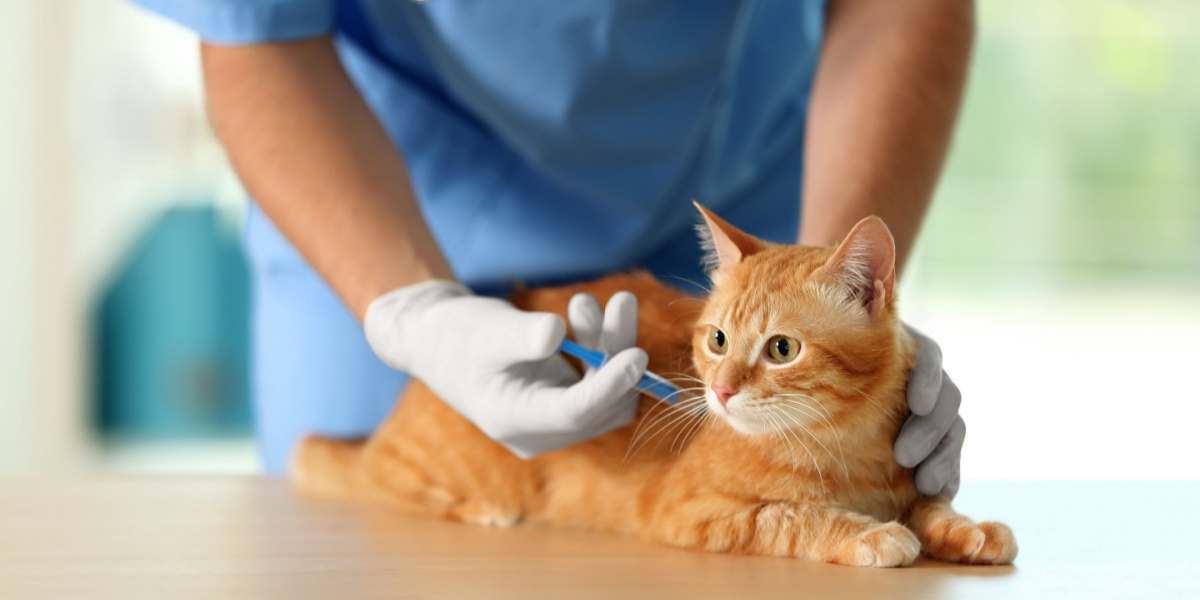
As cat owners, one of the most important things we can do for our cat’s health is to get them vaccinated. Cat vaccinations protect them against some of the most serious infectious diseases and help to prevent these diseases from spreading.
Modern cat vaccinations are very safe, and most cats will feel and behave completely normally after their vaccinations. However, a small percentage of cats may experience some minor side effects. This is normal, and most of the time they will recover within a few days without any veterinary care. But there are some things you can do at home to help.
Also Read: Understanding Cat Vaccination Schedule & Cost
What Should I Vaccinate My Cat Against?
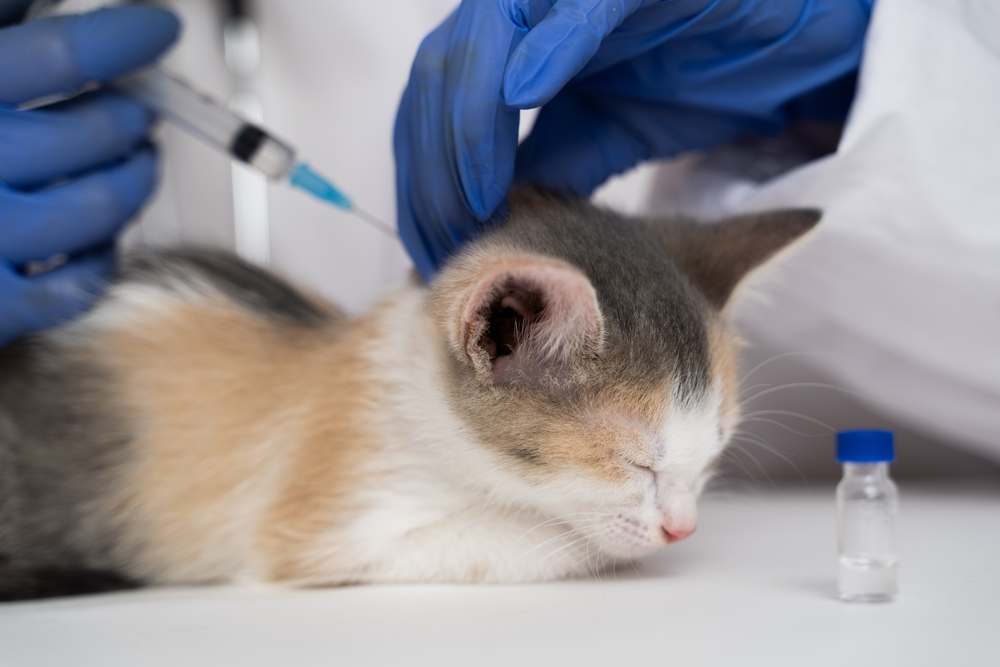
Getting your cat vaccinated is one of the most important aspects of responsible pet ownership.
The diseases your cat is most at risk for vary depending on where they live, and their lifestyle. Your veterinarian will advise you on the core feline vaccinations and vaccination schedule recommended for your cat’s needs. These usually include:
- Feline Calicivirus
- Feline Panleukopenia (also called Feline Distemper or Parvovirus)
- Feline Herpesvirus (also called Feline Rhinotracheitis Virus)
Your vet may also recommend non-core vaccines such as Feline Leukemia Virus (FeLV) or Rabies vaccine, depending on your cat’s location and whether they go outside or travel.
Also Read: Distemper Vaccine For Cats (Schedule, Cost & Side Effects)
What Are the Side Effects of Cat Vaccinations?
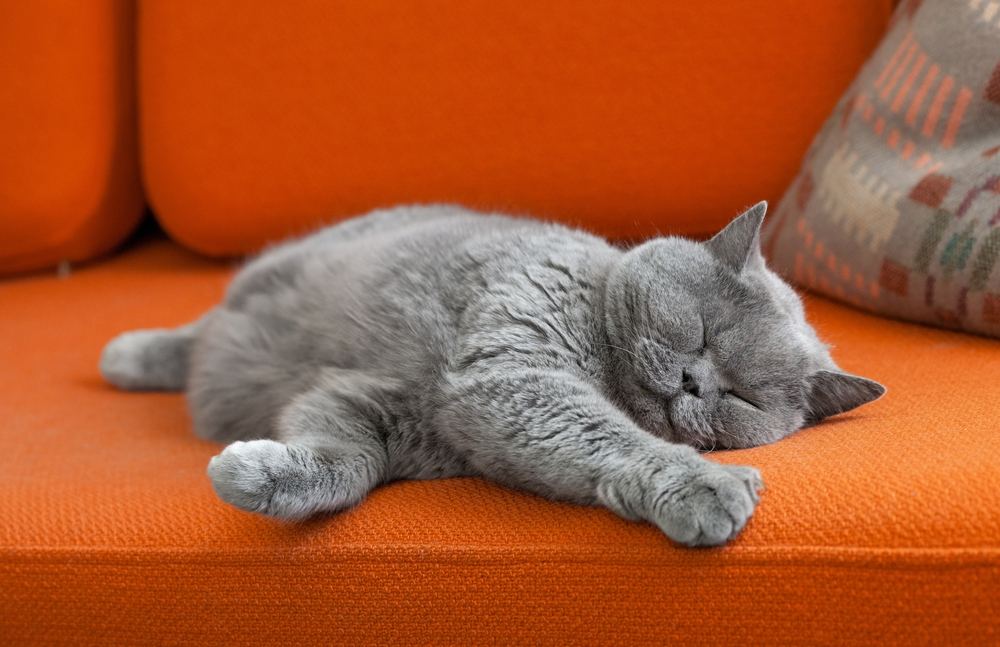
Some cats feel sleepy after stressful trips to the vet, and just need space to rest.
Cat vaccinations stimulate your cat’s immune system, which can cause some mild side effects. Some common side effects include:
- Swelling at the injection site
- Mild fever
- Loss of appetite
- Dullness
- Sleeping more
- Sneezing
- Coughing
- Nasal discharge
These symptoms are usually mild and will resolve within a few days. If you notice a lump or swelling at the site of the injection, this can take a little longer to resolve. Contact your vet if it is not getting smaller within two weeks.
Also Read: 10 Subtle Signs Your Cat May Be Sick
What Can I Do To Help My Cat Feel Better?
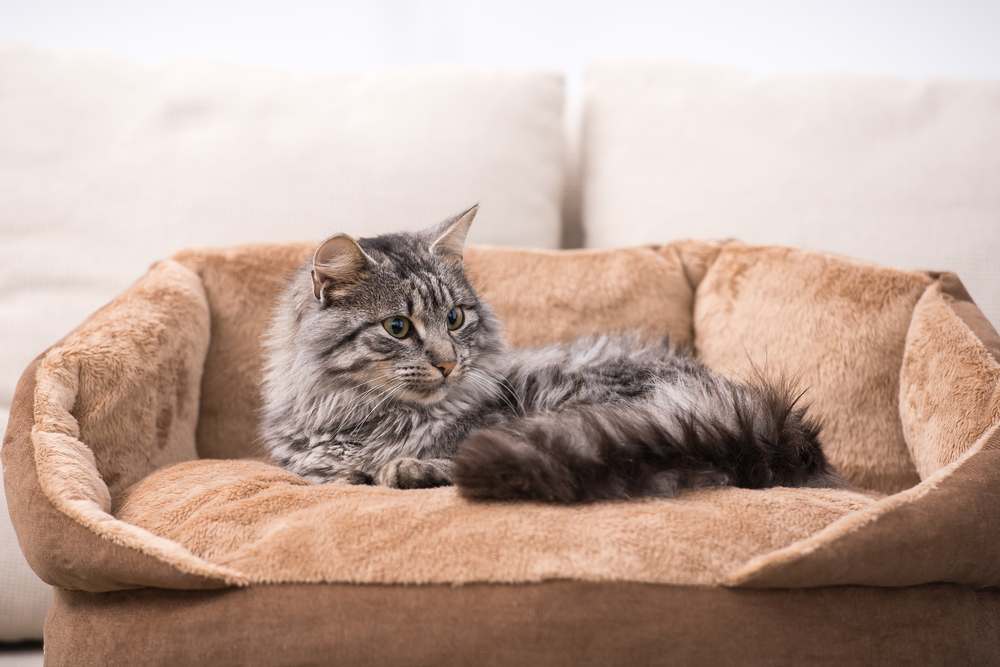
Making sure your cat is comfortable and has all their needs nearby is the best thing you can do to help your cat.
Most cats feel and behave completely normally after their vaccinations. Just be careful not to stroke them near where they had their injection, as it is often a bit tender for a few days.
If your cat is a bit out-of-sorts after their vaccination, here are a few tips for helping them to feel better:
- Provide a warm, soft bed somewhere quiet and out of the way.
- Remember they may feel sleepier than usual or want to be left alone.
- Avoid stroking them near the injection site where it is tender.
- Give them everything they need close by, like food, water, and their litter box.
- If they are off their food, you may need to tempt them with something tasty like cooked chicken or tuna.
As much as we want to provide comfort and reassurance to our cats, they often prefer to have some time to themselves after the stress of a vet visit. Don’t worry; let your cat rest and they will come to you when they are ready. Just keep a close eye on them and check on them regularly.
Also Read: How To Take Care Of A Kitten: The Complete Guide
When Should I Worry?
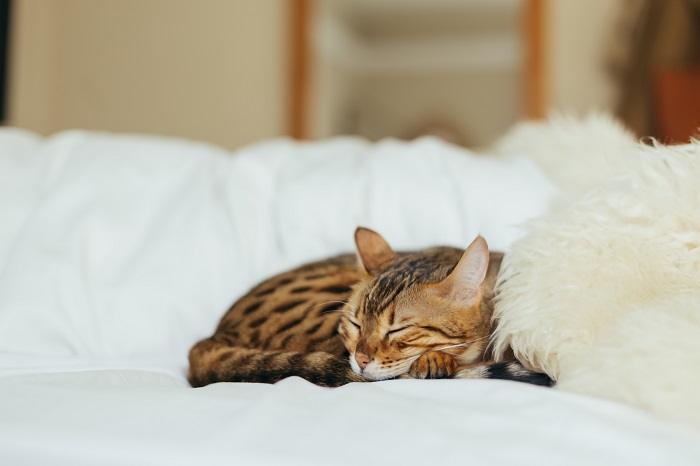
If your cat continues to seem a bit off or there is a lump near the vaccination site that doesn’t diminish in two weeks, call your veterinarian.
Being sleepy, a little sore, and a bit “out of it” for a few days is entirely normal following vaccination. Your cat should start to feel much more themselves within a day or two. If they still don’t seem themselves, or their condition worsens, call your veterinarian for advice.
If you’ve noticed a small lump or swelling near where your cat had their injection, this can take a little longer to get better. This is very normal but book a vet visit if it isn’t reducing in size by around two weeks – or if is getting any bigger.
Most of the time, the side effects of vaccines in cats are rare and very mild. But occasionally a cat can have a very serious reaction. This is called an “anaphylactic reaction” (or “anaphylaxis”) and it usually occurs within minutes to hours of receiving the vaccination. Anaphylaxis is a sudden and severe allergic reaction that can happen in response to any medication.
Also Read: Allergies In Cats: Causes, Symptoms & Treatments
Signs of Anaphylaxis
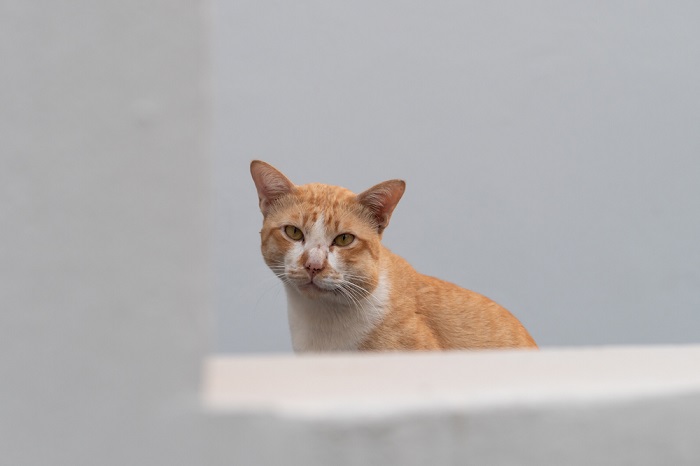
Anaphylactic shock is an emergency and requires an immediate trip to the vet.
Anaphylaxis is an emergency, so you should contact your veterinarian immediately if you see any of these symptoms.
- Collapse
- Difficulty breathing or a severe cough
- Difficulty balancing
- Excessive drooling
- Sudden vomiting or diarrhea
- Pale gums
- Facial swelling
- Red, itchy bumps on the body (hives)
- Seizures
Also Read: 11 Signs That You Need to Get Your Cat To the Emergency Room
Final Thoughts
As a vet, I give hundreds – if not thousands – of cat vaccinations every year. Although it is one of the easier parts of my job, it is one of the most important. These vaccinations protect our cats against diseases that could make them seriously unwell. The vast majority of cats experience no problems afterward.
Still, it’s natural to feel anxious when it comes to your own pet. If side effects occur, these are usually very mild and short-lived, particularly in comparison to the diseases you are protecting your cat against.
Most importantly, if you have any questions or concerns about vaccinating your cat, your veterinarian will be happy to help.
Also Read: 10 Most Dangerous Diseases In Cats
Frequently Asked Questions
Do cats feel unwell after vaccinations?
The majority of cats feel and behave normally after their vaccinations. But it isn’t uncommon for some to experience mild side effects, just like we do. These can include tiredness, a low-grade fever, loss of appetite, or mild cold signs.
How long does it take for a cat to feel better after a vaccination?
Many cats experience no side effects at all after vaccinations. If they do, they usually feel better within 1-2 days. If they are very unwell or not showing signs of improvement, you should contact your vet.
How do you treat a cat with a vaccine reaction?
Most vaccine side effects in cats are mild and resolve on their own within 1-2 days. But if your cat experiences a severe vaccine reaction (also called anaphylaxis), this is an emergency. In this case, contact your veterinarian immediately. Your veterinarian may treat your cat with epinephrine (adrenaline), antihistamines, or steroids to control the reaction.
How long can cats be sore after vaccines?
It is common for cats to develop swelling or a small lump at the site of their injection. This may be tender for a few days. The lump should show signs of reducing in two weeks. If not, or it is increasing in size, contact your veterinarian.




